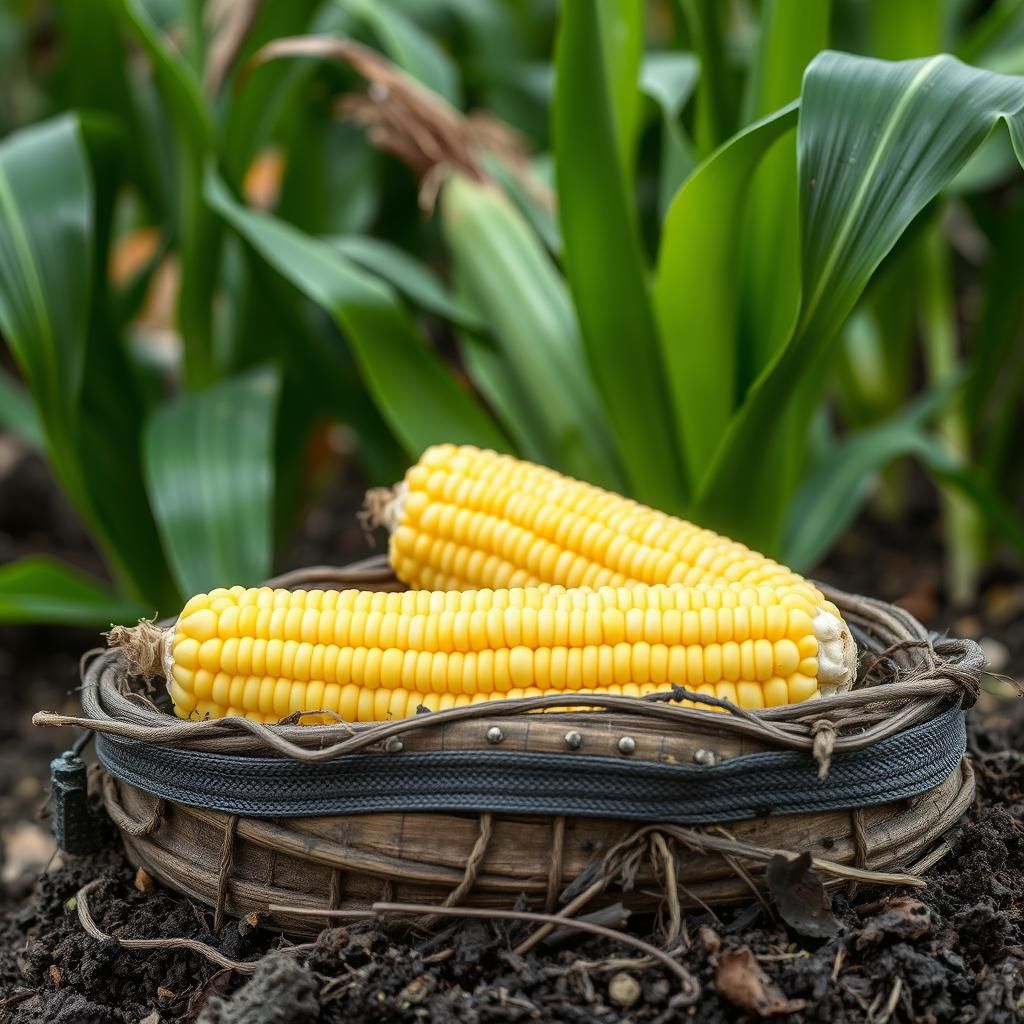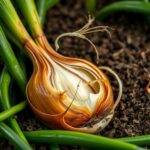Can You Put Corn Cobs in Compost? A Comprehensive Guide to Composting Corn Cobs

Composting is an eco-friendly way to recycle organic waste, and corn cobs often raise questions about their compostability. As a common byproduct of summer barbecues and fall harvests, corn cobs are not only plentiful but also pose unique challenges and benefits for composting enthusiasts. In this comprehensive guide, we will explore whether corn cobs can be effectively added to your compost pile, what factors influence their decomposition, and best practices for incorporating them into your composting routine. By the end, you'll have a clearer understanding of how to utilize this agricultural residue for a richer, healthier compost blend.
Can You Put Corn Cobs in Compost?
Yes, you can put corn cobs in your compost bin. Corn cobs are a great source of carbon, which is an essential component of composting. They break down more slowly than many other compost materials due to their tough texture, but when chopped or shredded, they can decompose more easily. Including corn cobs in your compost helps to balance the carbon-to-nitrogen ratio, which is vital for creating rich compost. However, it is advisable to use them with other green materials, such as kitchen scraps or grass clippings, to accelerate the composting process.
Benefits of Composting Corn Cobs
Composting corn cobs offers several benefits, such as improving soil structure and enhancing nutrient availability for plants. Corn cobs decompose into humus, which significantly contributes to soil fertility. This organic matter helps retain moisture and can improve drainage in both clay and sandy soils. Additionally, as corn cobs break down, they can aid in suppressing weeds and encouraging healthy microbial activity in the soil.
How to Prepare Corn Cobs for Compost
To prepare corn cobs for composting, it is highly beneficial to cut them into smaller pieces. This practice increases the surface area and accelerates the breakdown process. You can use a garden shredder or simply chop them up with a knife. Ensuring that they are not mixed in large chunks helps to integrate them well with other materials in the compost pile, facilitating faster decomposition.
Timeframe for Decomposition
The timeframe for corn cobs to decompose in a compost pile can vary widely based on environmental conditions and the method of composting used. Generally, whole corn cobs can take several months to over a year to break down completely, especially if they are not chopped. Hot composting methods, where temperature is actively managed, can significantly reduce this timeframe, allowing them to decompose within a few months.
See also:
Combining Corn Cobs with Other Compost Materials
When composting corn cobs, it is essential to balance them with other green materials to create a successful compost mix. Green materials, such as vegetable scraps, coffee grounds, and fresh grass clippings, provide the necessary nitrogen that balances the high carbon content of corn cobs. A good rule of thumb is to maintain a ratio of approximately 30:1 carbon to nitrogen to ensure optimal composting conditions.
Pest Concerns with Corn Cobs in Compost
While corn cobs themselves do not typically attract pests, the leftover kernels or husks can be appealing to certain creatures, such as rodents and insects. To minimize these risks, make sure to bury the corn cobs within the compost pile and avoid adding any leftover food debris that could attract pests. Regularly turning the compost helps to maintain a balanced environment, which discourages pest infestations.
| Material | Carbon/Nitrogen Ratio | Decomposition Time |
|---|---|---|
| Corn Cobs | 30:1 | Several months to over a year |
| Vegetable Scraps | 15:1 | 1-3 months |
| Grass Clippings | 20:1 | 1-2 months |
| Leaves | 60:1 | 6 months to a year |
The Benefits of Composting Corn Cobs
Composting corn cobs provides numerous benefits for your garden and the environment. As a carbon-rich material, they contribute to the balance of nitrogen in your compost pile, promoting a healthier decomposition process. Corn cobs can help improve the texture of your compost, enhancing aeration and drainage. Furthermore, utilizing agricultural waste like corn cobs reduces landfill waste, aligns with sustainable practices, and ultimately enriches your garden soil with vital nutrients.
Understanding the Decomposition Process of Corn Cobs
The decomposition of corn cobs can be a slower process compared to other compostable materials, due to their hard and fibrous nature. Microorganisms require time to break them down effectively; however, chopping or shredding the cobs can significantly accelerate this process. It’s essential to maintain a proper balance of green materials (like kitchen scraps) and brown materials (like corn cobs) in your compost pile to ensure optimal decomposition and prevent any unpleasant odors.
Best Practices for Adding Corn Cobs to Compost
When incorporating corn cobs into your compost, it's best to chop or shred them into smaller pieces, which promotes quicker breakdown. Mix them thoroughly with other compost materials to avoid clumping, which can lead to anaerobic conditions and odors. Aim for a compost heap that is moist but not overly wet, as maintaining proper moisture levels is critical to facilitate the composting process and support microbial activity.
See also:
The Nutritional Benefits of Processed Corn Cobs
Processed corn cobs are rich in various essential nutrients that contribute to soil health. While they might not have as high a nutrient content as some other compost materials, they do provide valuable carbon and improve soil structure. The addition of corn cobs can help retain moisture in your garden, protect against erosion, and encourage healthy microbial populations in the soil, which benefits overall plant growth.
Common Concerns about Composting Corn Cobs
A common concern when composting corn cobs is the potential for pest attraction or development of unwanted odors. Properly maintaining the compost pile's moisture levels and ensuring a good mix of materials can help mitigate these issues. Additionally, avoiding the inclusion of diseased plants or cobs that have undergone pesticide treatment will further reduce the risks associated with composting these materials.
Alternative Uses for Corn Cobs Outside of Composting
When not composted, corn cobs can be utilized in various alternative ways, demonstrating their versatility. They can be used as a mulch in gardens to help suppress weeds and retain moisture. Other creative uses include crafting homemade corn cob dolls or utilizing them in scientific experiments for educational purposes. Their potential as animal bedding or even as a fuel source in biomass energy production showcases the many practical applications of corn cobs beyond composting.
Questions from Our Readers
Can you compost corn cobs?
Yes, you can compost corn cobs. They are a great addition to your compost pile as they are organic material and will break down over time, contributing to nutrient-rich compost.
How long does it take for corn cobs to decompose in compost?
The decomposition time for corn cobs in compost can vary, but typically it takes several months to a year for them to fully break down, depending on the conditions and the size of the cobs.
See also:
Should corn cobs be cut up before composting?
While it's not strictly necessary, it's usually recommended to cut up corn cobs before adding them to your compost. This can speed up the decomposition process by increasing the surface area and making it easier for microbes to break them down.
Do corn cobs create odors in compost?
If managed properly, corn cobs should not create any negative odors in compost. However, if they are too compacted or mixed with too many other high-nitrogen materials, they may retain moisture and develop odors, so it's important to balance your compost ingredients.

If you want to read more articles like Can You Put Corn Cobs in Compost? A Comprehensive Guide to Composting Corn Cobs, we recommend you check out our Compost category.
Leave a Reply
Related Articles